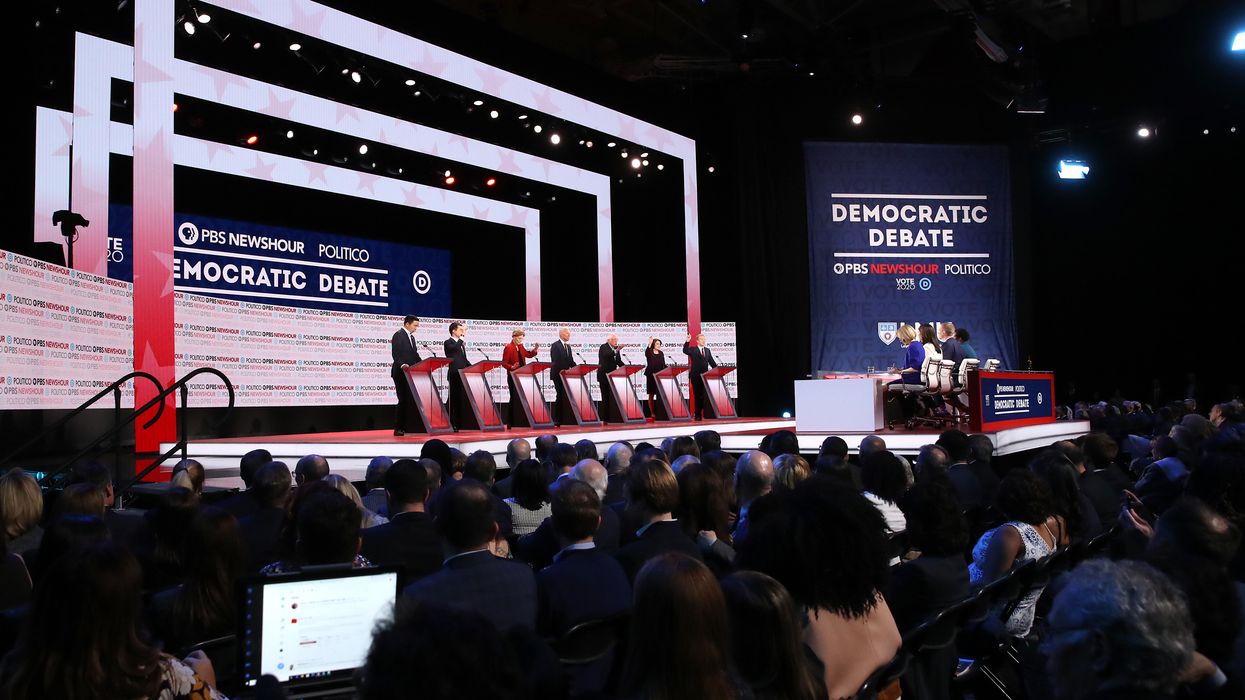Beckerman is the founder of Open the Debates, a cross-partisan group that advocates allowing more third-party and independent candidates to participate in campaign debates.
In 1858, the country was divided. Abraham Lincoln opened his campaign for the Senate in Illinois with a powerful and controversial speech quoting Jesus: "A house divided against itself cannot stand." He added, "I believe this government cannot endure, permanently half slave and half free."
Incumbent Democrat Stephen Douglas engaged Lincoln in a defining series of seven debates focused on the issue of slavery and its expansion to the western territories. The debates jolted the nation, drawing crowds of tens of thousands and widespread national coverage. While Douglas won the Senate race, the debates catapulted Lincoln to the Republican nomination for president in 1860 — and the pivotal role in saving the nation.
As we seek to exit another dark period of disunity without fraying the "bonds of affection" and "mystic chords of memory" that Lincoln believed unite us, we would be wise to look to the nature of our political discourse and the political debates that shape it.
On the one side, President Trump's Republican Party is shutting down debate altogether. It has canceled seven primaries and refused all calls for debates. His two major GOP challengers, former Massachusetts Gov. Bill Weld and former Rep. Joe Walsh of Illinois, are left to find sympathetic media and create their own public relations operation. In other words, the playing field is steeply slanted against them.
On the other side, the Democratic Party is having its own exclusionary debates. While their field has been praised for its diversity, the party has managed to accommodate over 20 voices while still being indefensibly exclusionary, arbitrary, biased and secretive.
Andrew Yang, the lone person of color who made it as far as the sixth debate in December, said the demographics on the stage were not a coincidence, but a result of the racial makeup of the fewer than 5 percent of Americans with the discretionary income and interest to donate to political campaigns. And now, with the Democratic National Committee set to decide on Friday who will get to debate in Des Moines in the final days before the Iowa caucuses, Yang is likely to get dropped — entirely because of invitation criteria largely reliant on polling, despite almost no early state polls being released since mid-November.
Of course, the Democratic debates have been lambasted for plenty of reasons beyond the invitation criteria. Criticism of the moderators, the substance and style of the questions, and the absurdity of the format has been widespread. The idea of 10 people in snippets of 30 seconds or 1 minute not only landing zingers and media hits but also tackling some of the biggest challenges facing our nation? It is ludicrous on its face.
Sen. Bernie Sanders, in an August interview, said, "You shouldn't even call them a debate. What they are is a reality TV show in which you have to come up with a soundbite and all that stuff. It's demeaning to the candidates and it's demeaning to the American people. You can't explain the complexity of health care in America in 45 seconds. Nobody can."
In contrast, the Lincoln-Douglas debates started with a 60-minute opening statement, followed by a 90-minute rebuttal and then a 30-minute rebuttal by the first speaker. The candidates addressed each other directly. There were no moderators and no limits on what could be said. They were centered almost entirely on slavery, the single issue fracturing the nation at the time.
While we are not calling explicitly for Lincoln-Douglas-style encounters, the very nature of today's political debates needs a serious overhaul. We desperately need to inject new ideas, new voices, new formats and new approaches into our lifeless debate process. Instead of relinquishing control of our political debates to the two parties along with self-appointed gatekeepers like the Commission on Presidential Debates and the TV networks, we should be asserting our rights to construct a people-powered process that serves our collective needs as a free nation.
We can choose to live in a democracy, or we can choose to live in a reality TV show — where the contestants get voted off the island well before We the People get a say.
During the horrific Civil War, Lincoln delivered his most famous speech, the Gettysburg Address, strengthening a sense of unifying national purpose that has far outlived his era: "We here highly resolve that these dead shall not have died in vain — that this nation, under God, shall have a new birth of freedom — and that government of the people, by the people, for the people, shall not perish from the earth."
While those powerful words were a rallying cry for American democracy, the idea of government of, by and for the people has never truly been attained. They are merely a symbol of what we aspire to as a nation and what we must come together to fight for.
At this time of great political upheaval, it is critical that we the people reinforce the aspirational principles that have gone furthest in uniting us. We must lean heavily on those ideals that have brought us together in common cause, even when it is clear that those ideals have never in our history been fully realized. If neither our debates nor our leaders are, like Lincoln, calling forward the "better angels of our nature" then it's time we scrap both and go back to first principles.



















